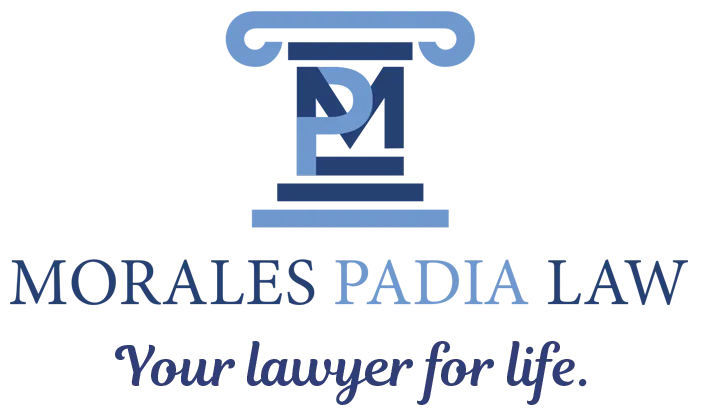Power of Attorney
Protect Your Interests When You Can't Act for Yourself
What is a Power of Attorney?
A Power of Attorney (POA) is a legal document that gives another person (called an agent or attorney-in-fact) the authority to act on your behalf in financial, legal, or medical matters. This crucial estate planning tool ensures your affairs can be managed if you become incapacitated or are unable to make decisions for yourself.
Types of Power of Attorney
Durable Power of Attorney
Remains effective even if you become incapacitated or mentally incompetent. This is the most common and important type for comprehensive protection.
- Survives incapacity
- Comprehensive authority
- Financial and legal matters
- Immediate or springing activation
Financial Power of Attorney
Specifically grants authority to handle financial and business affairs, including banking, investments, real estate transactions, and tax matters.
- Banking and investments
- Real estate transactions
- Tax filings and payments
- Business operations
Medical Power of Attorney
Authorizes someone to make healthcare decisions on your behalf when you're unable to communicate your wishes or make medical decisions.
- Treatment decisions
- Hospital and facility choices
- Medical information access
- End-of-life decisions
Limited Power of Attorney
Grants authority for specific transactions or time periods only. Often used for particular business deals or when you're temporarily unavailable.
- Single real estate closing
- Specific business transaction
- Temporary travel situations
- Defined time periods
Springing Power of Attorney
Only becomes effective when specific conditions are met, typically when you become incapacitated as certified by medical professionals.
- Triggered by incapacity
- Medical certification required
- Preserves current autonomy
- Automatic activation
General Power of Attorney
Provides broad authority to handle most financial and legal matters but typically ends if you become incapacitated (unless made durable).
- Broad financial authority
- Legal matter handling
- Business operations
- Asset management
Why Power of Attorney is Essential
Avoid Guardianship
Prevents the need for costly and time-consuming court-appointed guardianship proceedings if you become incapacitated.
Immediate Access
Ensures your chosen agent can immediately handle urgent financial or medical matters without court delays.
Personal Choice
Allows you to choose who makes decisions for you rather than leaving it to court appointment processes.
Asset Protection
Protects your assets and ensures bills are paid, investments managed, and property maintained during incapacity.
Healthcare Decisions
Ensures your medical preferences are known and followed by someone you trust during health crises.
Peace of Mind
Provides comfort knowing your affairs will be handled according to your wishes by trusted individuals.
Creating Your Power of Attorney
Consultation & Planning
Meet with an experienced attorney to discuss your needs, family situation, and determine which types of power of attorney are appropriate for your circumstances.
Choose Your Agent
Select trustworthy individuals to serve as your primary and backup agents. Consider their availability, financial responsibility, and ability to make difficult decisions.
Define Powers & Limitations
Specify exactly what authority your agent will have and any limitations or special instructions you want included in the document.
Document Preparation
Your attorney prepares the power of attorney documents according to Texas law requirements and your specific instructions.
Execution & Notarization
Sign the documents in the presence of a notary public and any required witnesses to ensure legal validity and enforceability.
Distribution & Storage
Provide copies to your agents, family members, doctors, and financial institutions. Store originals in a secure but accessible location.
Important Considerations
A power of attorney gives significant authority to your agent. Choose someone you trust completely and ensure they understand your wishes and values.
-
Agent Selection: Choose reliable, trustworthy individuals who understand your values and can make decisions in your best interest.
-
Regular Updates: Review and update your power of attorney documents regularly, especially after major life changes.
-
Clear Instructions: Provide detailed guidance about your preferences for financial management and healthcare decisions.
-
Multiple Agents: Consider appointing different agents for financial and medical decisions based on their strengths and expertise.
-
Backup Plans: Always name alternate agents in case your primary choices become unavailable or unable to serve.
-
Legal Compliance: Ensure documents meet all Texas legal requirements for validity and acceptance by financial institutions.
Protect Your Future Today
Don't wait until it's too late. Ensure your interests are protected with properly drafted power of attorney documents. Our experienced attorneys at Morales Padia Law will help you create comprehensive documents that provide security and peace of mind.
Schedule ConsultationRelated Estate Planning Services
Want to work with us?
Estate planning can be complex, but you don’t have to navigate it alone. Our experienced attorneys at Morales Padia Law are here to guide you through every step of the process, ensuring your assets are protected and your family’s future is secure. If you’re ready to take the next step in securing your legacy, contact us today to schedule a consultation.


Instagram
Facebook
Youtube
LinkedIn
TikTok